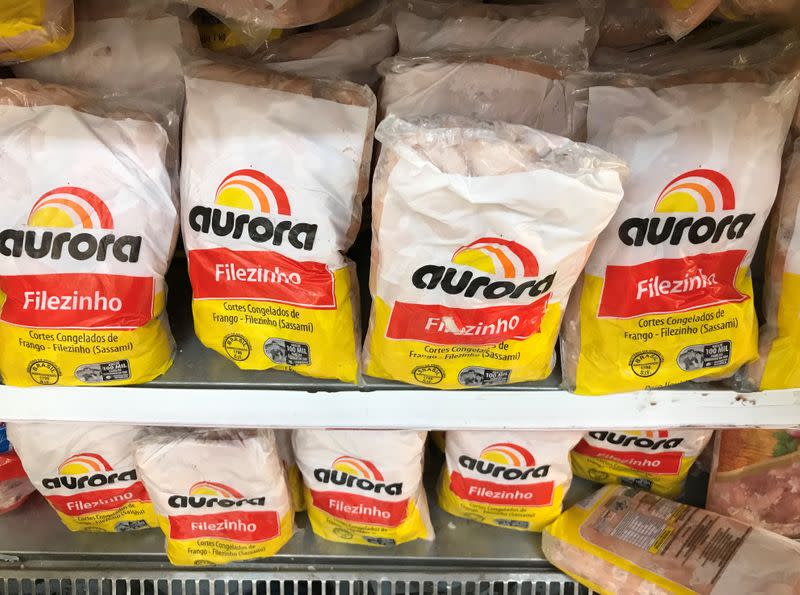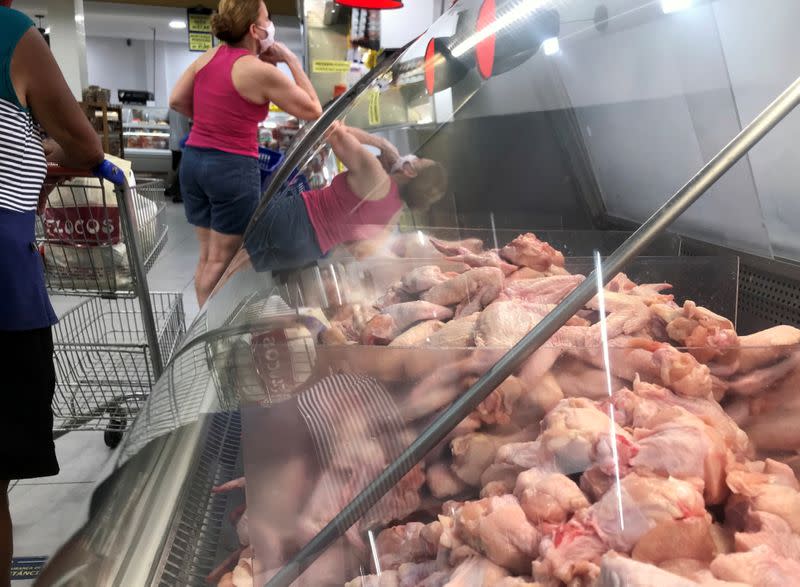Coronavirus contaminated chicken came from Brazil's Aurora, Chinese local government says
By Jake Spring and Ana Mano
BRASILIA/SAO PAULO (Reuters) - The Chinese city of Shenzhen's government on Thursday identified a Brazilian meat plant owned by Aurora, the country's third largest processor of chicken and pork, as the source of chicken wings that tested positive for the novel coronavirus.
The Shenzhen government identified the plant by its registration number in a posting on its website, that when checked against Brazilian records linked it to an Aurora facility in Brazil's Southern state of Santa Catarina.
Aurora, an unlisted company, said in a statement that Chinese authorities had not notified it about the alleged contamination.
Once formal notice is received, Aurora will provide the required information to the relevant authorities, the statement said. Aurora is taking all precautions to prevent the spread of coronavirus, it said.
Brazil's Agriculture Ministry said earlier that it was seeking clarification on the matter.
"There is no scientific evidence of transmission of the COVID-19 virus from frozen food or food packaging," the ministry said, citing the United Nations and the World Health Organization.
The Shenzhen government said a sample taken from the surface of the imported frozen chicken wings had tested positive.
But the Brazilian ministry emphasized that the Shenzhen government statement said that other samples of the same cargo tested negative, as did everyone who came into contact with the meat.
Registered meat plants in Brazil follow strict sanitary procedures and their products are safe, it said.
As of Wednesday, six Brazilian meat plants remained blocked from exporting to China, according to the Chinese customs agency's website, after they were barred over concerns about coronavirus amid reports of thousands of cases spreading throughout the industry.
Shares in Brazil's largest chicken exporter, BRF SA, fell by more than 7% in late trading, with others in the sector showing smaller losses.
BRF, whose results were affected by higher production costs due to the pandemic, said testing meat products ahead of shipment to China is "extremely complex."
(Reporting by Jake Spring in Brasilia, Ana Mano and Nayara Figueiredo in Sao Paulo and Dominique Patton in Beijing; Editing by Chizu Nomiyama, Jonathan Oatis and Sonya Hepinstall)

